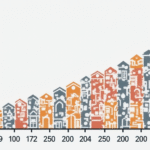Background on Edgar Amador Zamora and His Role
Edgar Amador Zamora serves as the head of Mexico’s Secretaría de Hacienda y Crédito Público (SHCP), the Ministry of Finance and Public Credit. His department is responsible for managing the country’s public finances, including tax collection and government debt.
Fiscal Bootlegging Allegations and Hacienda’s Response
During a Senate hearing regarding the First Governement Report, Senator Carolina Viggiano Austria from the Institutional Revolutionary Party (PRI) questioned Amador Zamora about the fiscal bootlegging issue, also known as “huachicol fiscal.” This illegal activity involves the smuggling of fuel, causing an estimated annual loss of 170 billion pesos to the public treasury.
Amador Zamora firmly stated that the SHCP is neither indulgent nor negligent in addressing this problem. He emphasized that they are actively working to reverse the situation and highlighted the growth in tax revenue at customs as evidence of their commitment.
Tax Revenue Growth
- By the end of August, tax revenues left 3.7 trillion pesos in the public treasury, a 6.5% increase compared to the same period last year.
- Customs revenue amounted to 953.754 billion pesos, an 18.6% increase year-over-year.
Legal Actions Against Fiscal Bootlegging
In response to persistent inquiries from legislators, Amador Zamora disclosed that since April 2023, the Federal Fiscal Prosecutor’s Office has filed 102 lawsuits against the Federal Attorney General’s Office (FGR) for fiscal bootlegging.
- These lawsuits target individuals and legal entities involved in illicit hydrocarbons, amounting to nearly 16 billion pesos.
- Amador Zamora asserted that these legal actions are part of a concerted government effort involving the Fiscal Prosecutor’s Office, Customs, SAT, and Security.
Pemex and Fiscal Consolidation
When questioned about not meeting the fiscal deficit target of 3.9% of the Gross Domestic Product (GDP), now expected at 4.3%, Amador Zamora attributed part of the issue to Petróleos Mexicanos (Pemex).
- He explained that providing financial support to Pemex is a significant effort by the Federal Government to help the oil company regain its status as a source of national pride.
- Amador Zamora also mentioned that the country has solidly transitioned towards fiscal convergence this year, aiming for a deficit level of 4.1% of GDP next year.
Debt and Fiscal Discipline
Regarding the increase in public debt, Amador Zamora stated that there has been “rigorous fiscal discipline.” He explained that to cover excessive expenses, the government has had to borrow heavily. However, he did not directly address criticisms of perceived irresponsibility towards Mexico’s future and alleged corruption related to fiscal bootlegging.
Key Questions and Answers
- Question: Why won’t the fiscal deficit target be met this year?
- Question: How is the government addressing fiscal bootlegging?
- Question: What is the current status of tax revenue and customs collections?
Answer: Part of the reason is the support provided to Petróleos Mexicanos (Pemex) to help the company regain its status as a source of national pride.
Answer: The government is taking legal action, with 102 lawsuits filed against individuals and entities involved in illicit hydrocarbons, amounting to nearly 16 billion pesos.
Answer: Tax revenues have increased by 6.5% compared to the same period last year, leaving 3.7 trillion pesos in the public treasury. Customs revenue has also grown by 18.6% year-over-year, amounting to 953.754 billion pesos.






